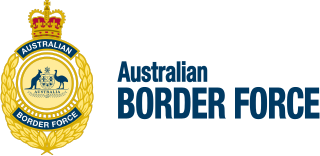
The Minister for Foreign Affairs is the minister in the Government of Australia who is responsible for overseeing the international diplomacy section of the Department of Foreign Affairs and Trade. Senator Marise Payne was appointed as Foreign Minister by Prime Minister Scott Morrison in August 2018 following the resignation of Julie Bishop.
The Third Menzies Ministry was the twenty-eighth Australian Commonwealth ministry, and ran from 28 October 1940 to 28 August 1941.
The Eighth Menzies Ministry was the thirty-ninth Australian Commonwealth ministry, and ran from 10 December 1958 to 22 December 1961.

The Department of Foreign Affairs and Trade is the department of the Government of Australia responsible for foreign policy, foreign relations, foreign aid, consular services, and trade and investment.

Christian Brothers College was founded in 1878 and is a Roman Catholic independent secondary college for boys. It is part of the Association of Edmund Rice schools. The school was originally founded and run by the Christian Brothers, however the Brothers have for many years not be involved in the running of the school. CBC St Kilda is located in the Melbourne suburb of St Kilda East with another campus in nearby Balaclava.

The China–Australia Free Trade Agreement (ChAFTA) is a bilateral Free Trade Agreement (FTA) between the governments of Australia and China. Since negotiations began, 21 negotiating rounds have been completed. The deal was completed on 17 November 2014 and details released two days later, nearly 10 years after its first round of negotiations that began on 23 May 2005 after a joint feasibility study. The free trade agreement was signed between the two countries on 17 June 2015. Following the usual treaty making process the agreement came into force on 20 December 2015, after the Chinese Government completed its domestic legal and legislative processes and the Australian Parliament’s Joint Standing Committee on Treaties and the Senate Foreign Affairs, Defence and Trade References Committee finished a review.
Sir Alan Thomas Carmody was an Australian public servant and government official, who was knighted for his contributions.

The Secretary of the Department of the Prime Minister and Cabinet is the public service head of Australia's Department of the Prime Minister and Cabinet and the most senior public servant in the administration of Government in Australia.
Sir Frederick Henry Wheeler was a senior Australian public servant. He was Secretary of the Department of the Treasury from 1971 to 1979.

The Australian Border Force (ABF) is a law enforcement agency, part of the Department of Home Affairs, responsible for offshore and onshore border control enforcement, investigations, compliance and detention operations in Australia. The Force was established on 1 July 2015 merging the Australian Customs and Border Protection Service with the immigration detention and compliance functions of the then Department of Immigration and Border Protection.
Robert McKeeman Oakley was a senior Australian public servant. He was Comptroller-General of Customs between 1923 and 1927.
Sir Nicholas Colston Lockyer ISO was a senior Australian public servant, best known for his time as head of the Department of Trade and Customs.
The King's Birthday Honours 1933 were appointments by King George V to various orders and honours to reward and highlight good works by members of the British Empire.
Edwin Abbott was a senior Australian public servant. Between 1933 and 1944, he was Controller-General of the Department of Trade and Customs.
Sir Francis Anthony "Frank" Meere was a senior Australian public servant. He was Comptroller-General of Customs between 1952 and 1960, heading first the Department of Trade and Customs and then the Department of Customs and Excise.
Ernest Thomas Hall was a senior Australian public servant. He was Controller-General of the Department of Trade and Customs between 1927 and 1933.
The 1926 Birthday Honours were appointments by King George V to various orders and honours to reward and highlight good works by citizens of the British Empire. The appointments were made to celebrate the official birthday of The King on 3 June, but it was announced on 20 May that due to the national strike, the King had approved the Prime Minister's recommendation to delay the publication of the list until 3 July 1926. The honours were effective to 5 June 1926. Per standard practice, Sir Paul Chater, who died 27 May 1926, still received the honour of Knight Commander of the Order of the British Empire as he would have received the honour if he had survived.
The 1933 New Year Honours were appointments by King George V to various orders and honours to reward and highlight good works by citizens of the United Kingdom and British Empire. They were announced on 30 December 1932.
The 1925 Birthday Honours were appointments by King George V to various orders and honours to reward and highlight good works by citizens of the British Empire. The appointments were made to celebrate the official birthday of The King, and were published in The London Gazette on 3 June 1925.










